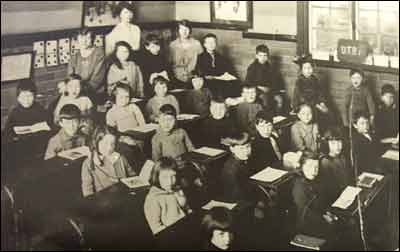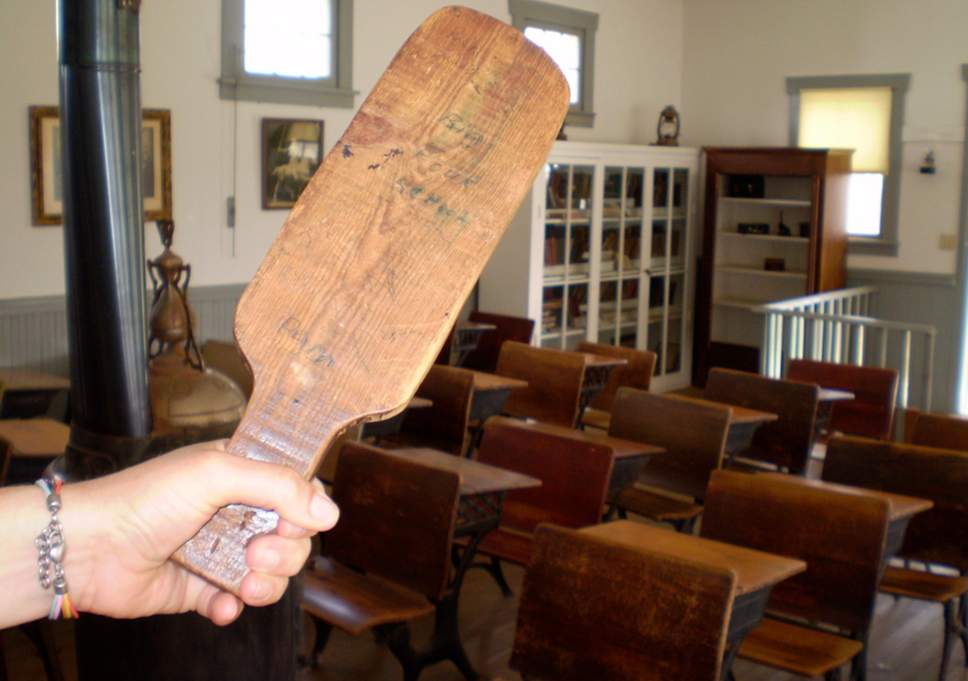Harold Gill (1919-2003): Education and Schooling
Harold Gill was something of a model pupil during his time at school. Or at least he was a pupil well-liked by his teacher’s. He confesses ‘I was something in the nature of being that same teacher’s pet’ (Pg.1). This eagerness to learn is certainly reflected in the fluency and gusto of his memoir. This is expressed in Harold’s rich vocabulary, using phrases such as ‘recalcitrant pupil’ (Pg.7) and ‘weaved a fortuitous path’ (Pg.21). Burnett proposes that many working-class autobiographies are proof of quality schooling in the nineteenth and early twentieth centuries. He writes: ‘For all its obvious defects and limitations the achievements of elementary education were immense – 6,000,000 children at school taught by 150,000 teachers, basic literacy and numeracy brought to the mass of the child population and, on the evidence of autobiographical writings, not always at the expense of low standards and stifled imagination’.

For Harold, school and education provided many of life’s big, first lessons. And these were lessons that Harold would carry with him through his life. For example, it was at school that Harold had his first brush with romance. He recalls ‘It happened to me thus, –two girls who were in the same class, at school as myself passed our group of three boys as we walked the ‘run’ one sunny Sunday afternoon. One girl, Annie G pointed at me and said “Mary N has got her eye on you,”‘ (Pg.11). It was also through a schoolboy rivalry that Harold had his first conflict. “Catholic Bull-dog!”,, he called repeatedly, “Catholic Bull-dog! Yah! Yah!”. I was so astonished, I was literally at a loss for words. In my amazement at the verbal vilification, I made the only retort I could mentally muster, and this too, had canine implications, “Proddy Dog!” I countered.’ (Pg.4). This temper and readiness to defend himself continues throughout Harold’s memoir. His school years clearly played a role in moulding Harold’s character, as he admits: ‘Thus my education, both academical and ecclesiastical was taking shape, and if the child had not yet qualified as Father of the Man, at least the stage was being set’ (Pg.6).
Harold also remembers the involvement of physical punishment in school. He writes in his memoir: ‘If contact was made, and your head almost severed from your neck by the force of the blow, you were then subjected to a fusilade of similar swings which left the recipient temporarily deafened as his ear drums rang in protest, or as a knell of sympathy’ (Pg.6). Corporal punishment is now outlawed in British schools and a topic of controversy in the home. Perhaps though, this ‘tough upbringing’ prepared the youth of the early 1900s for the brutality of World War Two.

The schooling system cannot take all the credit for Harold’s wisdom and knowledge however. David Vincent argues that parents too deserve praise for even sending working-class children like Harold to school, when a job in the factories or mills would have undoubtedly eased their financial pains. He writes that ‘Whilst parents and children were subject to an ever more complex range of pressures, for the most part they retained freedom of choice. The defeat of illiteracy was in the last resort the responsibility of the illiterates themselves.’
Works Cited:
Burnett, John. Destiny Obscure: Autobiographies of Childhood, Education and Family from the 1820s to the 1920s. London: Alan Lane, 1982
Gill, Harold, Untitled, TS, pp.66 (c. 31,000 words). Burnett Archive of Working Class Autobiographies. Brunel University Library, July 1987, 2:316
Vincent, David. ‘Love and Death and the Nineteenth-Century Working Class’ Social History, 5.2 (1980): 223-247
Images Cited:
Image of ‘ A typical twentieth century classroom’. Accessed 20/04/19.
http://www.bbc.co.uk/liverpool/localhistory/mersey_times/issue_04/1900/1900.shtml
Image of ‘A wooden paddle used for beating in schools’. Accessed 21/04/19.
https://www.independent.co.uk/news/world/americas/texas-school-three-rivers-corporal-punishment-paddling-a7854881.html

Leave a Reply